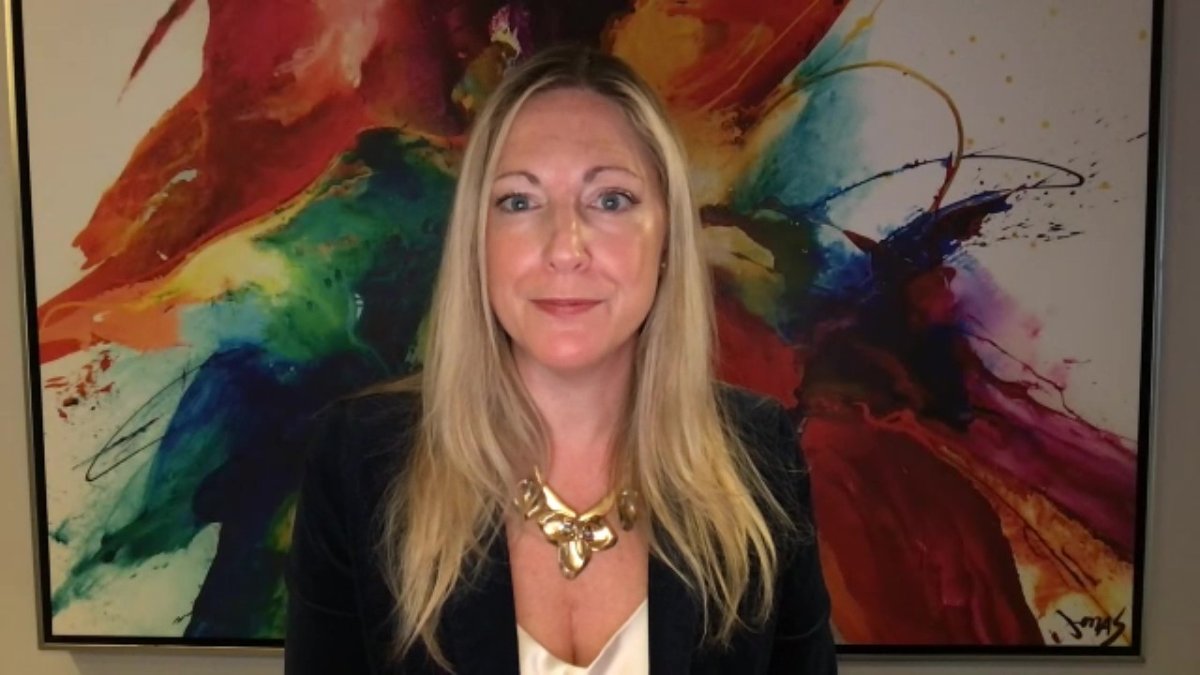The fourth wave of COVID-19 has hit neighbouring provinces Nova Scotia and New Brunswick in starkly different ways.

While Nova Scotia has seen a modest uptick in cases compared with the summer, New Brunswick is seeing an unprecedented spike in community spread, hospitalizations, and deaths.
Active cases in the province pushed past 1,000 beginning last week — making it the highest active case counts since the pandemic began.
While there are many factors that could have contributed to this, an early easing of public health measures could be a major one.
New Brunswick lifted COVID-19 restrictions, including gathering limits and the masking mandate, back in July. The province had previously set a goal of vaccinating 75 per cent of eligible residents before lifting the restrictions, but had not even hit that goalpost.
To make matters worse, the province saw a slowdown in vaccination rates once the Green phase was announced.
All of this was exacerbated by the fact the Delta variant is more easily transmissible.
Last month, as cases continued to climb in New Brunswick, Premier Blaine Higgs said he was “not very happy” about the situation and hinted at regret for moving the province into the Green phase of its reopening plan.
- 3 women diagnosed with HIV after ‘vampire facials’ at unlicensed U.S. spa
- N.S. mom calls for better ultrasound access after private clinic reveals twins
- Solar eclipse eye damage: More than 160 cases reported in Ontario, Quebec
- ‘Super lice’ are becoming more resistant to chemical shampoos. What to use instead
“Through my life, there’s lots of times in hindsight I would do things differently and yes, could this be one of them? In hindsight,” he said on Sept. 24.
“Right now, we’re reacting to the situation we’re in.”
So, what sets the provinces apart?
Nova Scotia-based infectious disease expert Dr. Lisa Barrett attributed the success of Nova Scotia to keeping certain restrictions, including the public mask mandate and border controls.
“And we’ve done a lot more testing as we went along, in addition to keeping some gathering limits and being slower to reopen some of the social and socialize businesses,” Barrett said during an interview last Thursday.
“Basically, there was less opportunity for virus to move, and so it moved less. And when it moved, we knew where it was.”
But she cautioned that what is happening in New Brunswick isn’t isolated, and other provinces have also gone through their own ebb and flow with the pandemic.
“I think we’ve had some cautionary tales in our country as a whole. Early on, Quebec and Ontario did some things differently — used less public health measures, took them away more quickly. And they saw a bigger wave three, wave four,” she said.
“(New Brunswick) has not done that. They’ve done much more. I’d like to call it the Nova Scotia-style of approach, and they have been seeing a flattening of their curves. That’s partially (due to) vaccination, but also a little bit more prudence to their public health measures.”
Restrictions should be kept through Christmas
While Nova Scotia is currently in a good position, Barrett cautions it’s not the time to let our guard down.
Specifically, the same precautions taken during Thanksgiving — which included a gathering limit of 25 people indoors, and continued masking in public places — should be maintained through Christmas.
“Then when we get to the spring, we get through this next bit, we can really talk about some serious change,” she said.
“We watched it in other parts of the country, in the world. And I think every expert on virus spread has said the same thing. So, I think in Nova Scotia, we are still very much open. We do a lot of things. People are able to socialize and see some family,” she said.
What’s key, according to Barrett, will be getting children under the age of 12 vaccinated.
This is particularly evident with the growing number of school exposure notifications in Nova Scotia, particularly in Central Zone, where Public Health has said there is community spread.
Parents of students not old enough to be eligible for vaccination have advocated for better communication from the province since the beginning of the school year. Nova Scotia has since resumed publicly releasing data on school exposures, temporarily closed two schools in Halifax and Dartmouth that had repeated cases, and sent rapid test kits to students in pre-primary to Grade 6.
Currently, Pfizer has submitted preliminary data to Health Canada for its vaccine for children aged five through 11.
The company has already asked U.S. regulators to approve emergency use of its vaccine for that age group.
“This Delta (variant of) COVID-19 — until we get under-12 people vaccinated and we have more immunity in our vulnerable vaccinated people, we cannot remove all public health measures like masks, a little bit of prudence around huge gatherings inside and promotion of vaccination with some testing,” Barrett said.
“If we do take those tools away, we do end up with unnecessary and unneeded deaths.”
When New Brunswick might see ‘major downswing’ in cases
Meanwhile, Barrett said she believes it’s going to take “a little while” for New Brunswick to realistically see a “downswing” in its COVID-19 activity.
The state of emergency was reinstated on Sept. 24 and circuit-breaker restrictions were brought in for hot spots on Oct. 8, as well as Thanksgiving gathering restrictions that weekend. The province also brought in a proof-of-vaccination policy on Sept. 22 for non-essential businesses and a vaccination mandate for certain provincial employees, including long-term care and child-care workers.

Barrett said improvements will take “several” two-week incubation periods.
“I think people in New Brunswick are like Nova Scotians. They seem to toe the line pretty well,” she said.
“It’s going to take several (incubation periods) just because virus is so high right now and so many people have so few symptoms because of vaccination and other things. I would suspect you’ll start to see a difference within a couple of weeks, but to really get things under control, it’s probably going to take two or three to four, six weeks before you see a major major downswing.”





Comments